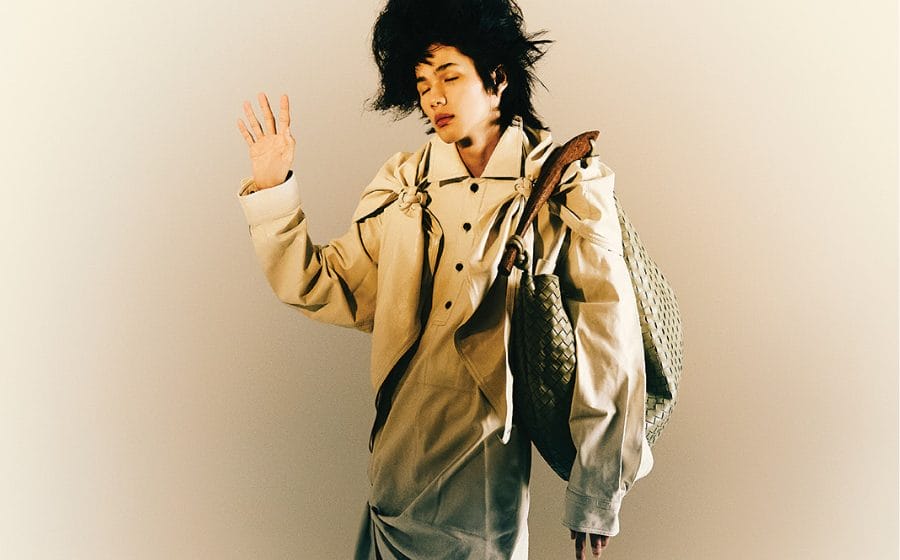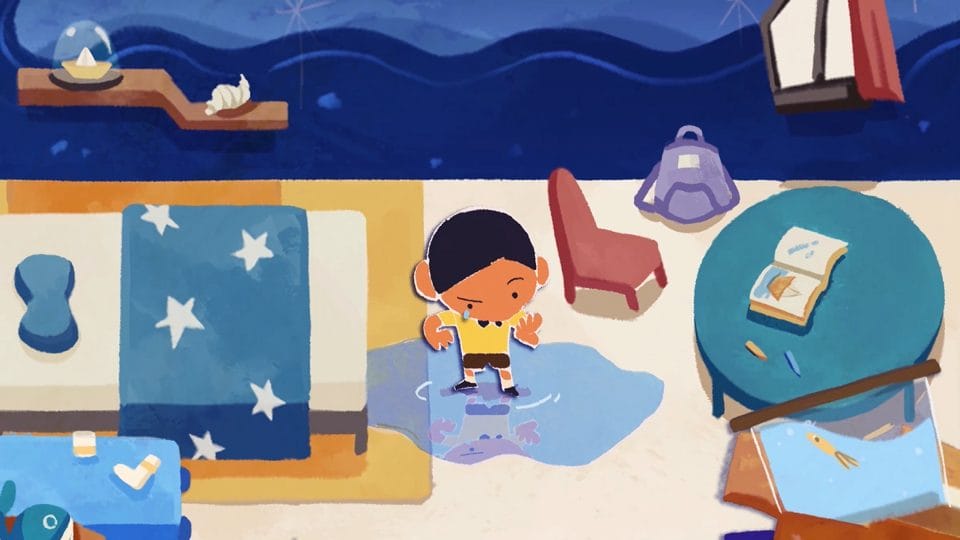 The European Film Festival at The Projector featured short films from emerging Singaporean student filmmakers. Prashant Somosundram, the general manager of The Projector, speaks to some of them about loss and finding a personal voice through their short films.
The European Film Festival at The Projector featured short films from emerging Singaporean student filmmakers. Prashant Somosundram, the general manager of The Projector, speaks to some of them about loss and finding a personal voice through their short films.
Pictured above: Tankboy by Novella
What made you decide to pursue filmmaking?
Growing up, I liked to draw a lot and my parents had always been busy working. After school, I’d spend hours watching anime, Disney, and live-action films on the computer. Every time I finish a good one, I feel super inspired and would think of the film over and over again. I never thought much before about my decision to pursue filmmaking. It was as simple as “I want to make good movies, be inspiring, and get famous!”, so I took up animation filmmaking in college.
Are there any Singaporean and international filmmakers who inspire you?
Currently, the closest are my friends and colleagues in Finding Pictures, the studio I’m currently working at. I get to see a lot of unique and very high-quality animated films in production in Singapore, it’s so fresh! Other than that, I love Anthony Chen’s Ilo Ilo. Outside of Singapore, I enjoy the works of directors Hirokazu Koreeda and Abbas Kiarostami. For animation filmmakers, I love Yuri Norstein and Isao Takahata’s work.
Also, I admire Elizabeth Ito’s animated children’s series, City of Ghosts.
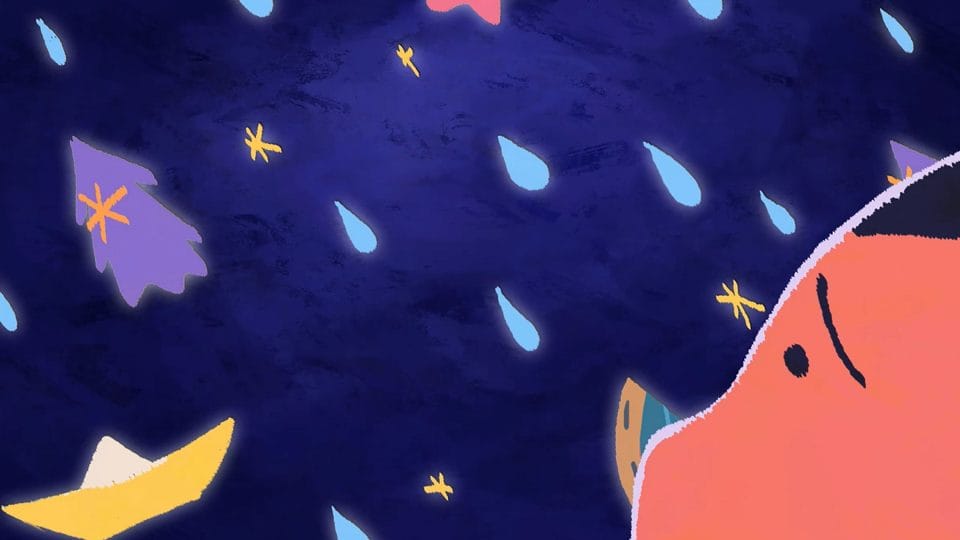 Tankboy is an animation film relating to the loss of home, dealing with grief, and ultimately finding a sense of community. What was your inspiration for choosing this topic and did the script evolve significantly from initial conception to the final edit?
Tankboy is an animation film relating to the loss of home, dealing with grief, and ultimately finding a sense of community. What was your inspiration for choosing this topic and did the script evolve significantly from initial conception to the final edit?
I wanted to tell a personal message about myself and my friends. We were in our early adulthood; it was an odd phase somewhat still like a child, yet expected to grow up so fast. A lot of my peers were going through hard times facing many different things that come and go. I found that distress is still viewed as a negative and somewhat improper experience. I wanted to embrace it instead and ultimately offer comfort and hope from it.
During the writing process, there were a lot of iterations to the script. We started with the idea of a child who magically cannot stop crying. Many questions came up with the story logic and we explored many different endings and possibilities. Eventually, we had to settle down by focusing on the child’s experience of processing his strange tears. We also wanted to tell the story with a heavy monologue at first, but it did not work well as it made the tone a little too heavy.
In the end, we kept things light with a nursery rhyme-like narration. I think the contrast between the deeper theme and childlike tone made the final film more joyful to watch.
Could you share more about the creative choice in choosing animation as a medium for this serious topic and how long it took to produce this short film? Did animation allow you more creative freedom in exploring the topic of grief and acceptance?
I have always been drawing and creating animations as I think it has this strange charm to telling stories without any visual limitation. For Tankboy, it took us almost a year to get from the conception to the final export. It was really fun to portray crying as a non- stop teardrop shape coming out of the eyes. We also played a lot with picture book styles, rough edges, and paper cut-out looks to create nostalgia and playful childlike visuals.
We took a lot of inspiration from picture book artists like Eric Carle and Oliver Jeffers. We want the audience to feel as if they were inside the picture book world!
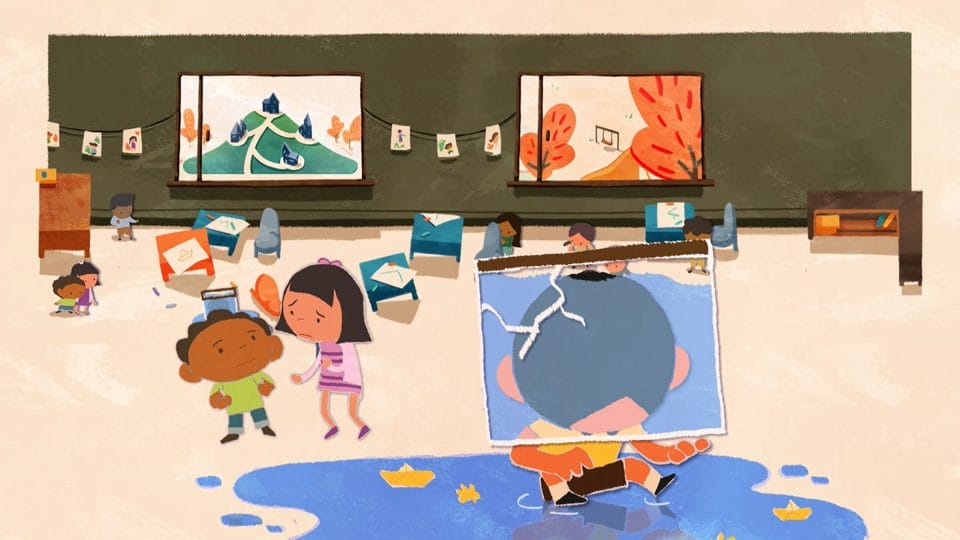 Music and sound design play an important role in Tankboy. Were there any production challenges that you encountered in producing the film?
Music and sound design play an important role in Tankboy. Were there any production challenges that you encountered in producing the film?
Back in our school, music normally comes last in production, like a garnish to the animation. However, for Tankboy, there was this shot where I wanted the visual to be led by the music. We wanted to take the focus off the plot and just immerse ourselves in what the character felt. We intentionally left the storyboard empty for that particular shot and it was quite risky for the production, but we trusted our composer, Zach.
We communicated what that sequence would be like and he created music based on his interpretation. From there on we built the animation based on the rhythm and melody.
The music plays a strong part in the storytelling and we owe our music composer a lot for that! It was quite challenging as we only communicated online, but I think it was worth the risk. Tankboy would not be as powerful without the music: not only for that sequence but also for the whole world- building in the film.
What was your initial reaction, thoughts, and feelings when you found out that the film was selected for the European Film Festival, and what was it like watching it on the big screen with a cinema-going audience?
It felt like a dream! I never imagined I would see the drawings our team worked on using a tiny monitor at home day and night while in our pyjamas brought to the big screen. I was only a student working virtually with my teammates during the pandemic, but now that we see it in cinemas with the audience, it made me think, “Oh, I’m a filmmaker now!”. It was inspiring, and it made me feel greedier [laughs]. I hope to create more and even better films!
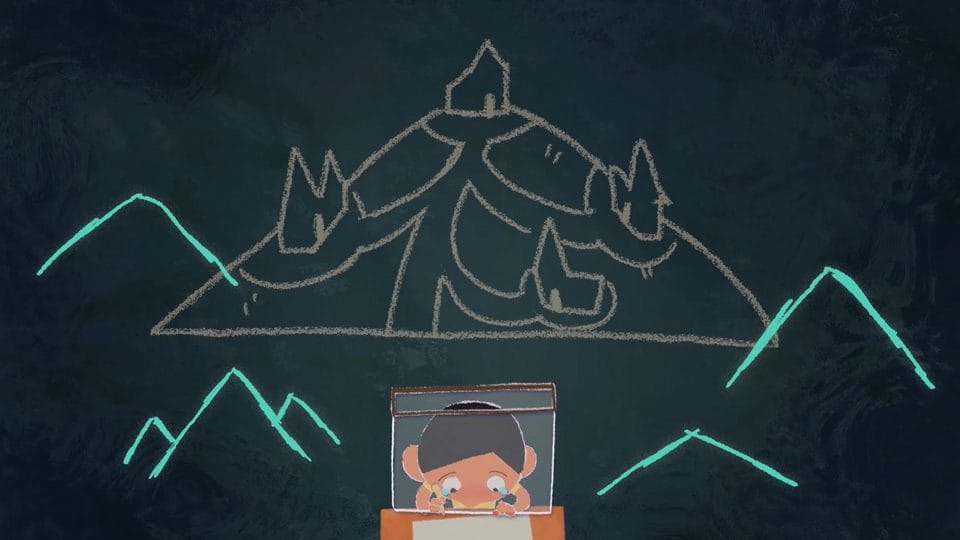 Are you currently working on any creative projects?
Are you currently working on any creative projects?
Yes! These days I’ve been hopping around a lot of projects as an animator for the children’s series Puberteens, and also for an upcoming independent short film. I’m also working on an independent music video. Ultimately, I want to work on my short film pitch. Maybe soon.
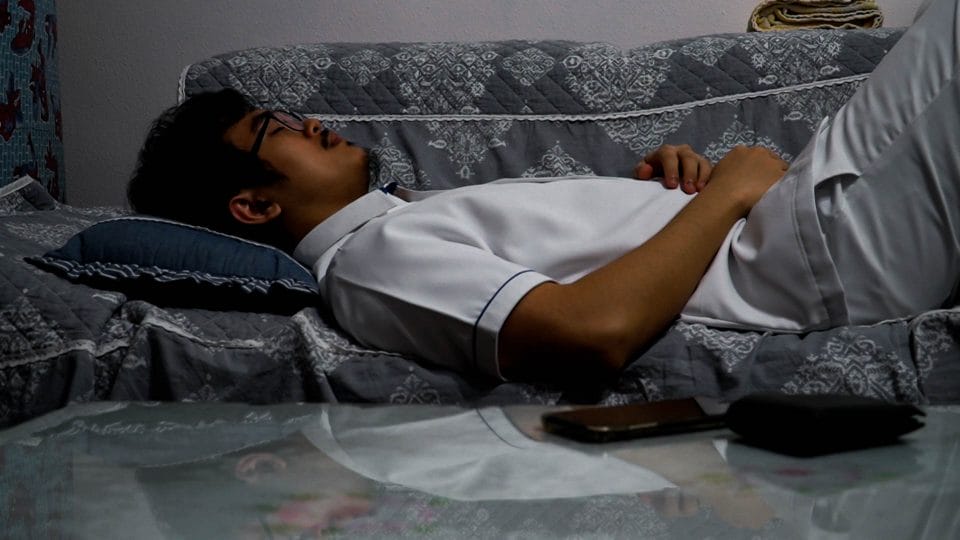 ‘Assalamualaikum’ by Hazman
‘Assalamualaikum’ by Hazman
What made you decide to pursue filmmaking?
I’ve always watched films with my family since childhood, it was kind of our bonding activity. I’ve watched Bollywood films with my mom and my aunts, Hong Kong martial arts ones with my dad, and Korean dramas with my sisters. My fondest memory is that my whole family will lay out mattresses in the living room and go on a movie series marathon like Star Wars or Harry Potter.
Naturally, I became interested in films and storytelling, and decided to pursue it as a career.
Are there any Singaporean and international filmmakers who inspire you?
I’d say that local filmmaker Jonathan Choo inspires me. He taught me a lot of things about filmmaking: how to approach writing, how to navigate Singapore’s film landscape, etc. I hope that I’d be as prominent as him in the industry one day.
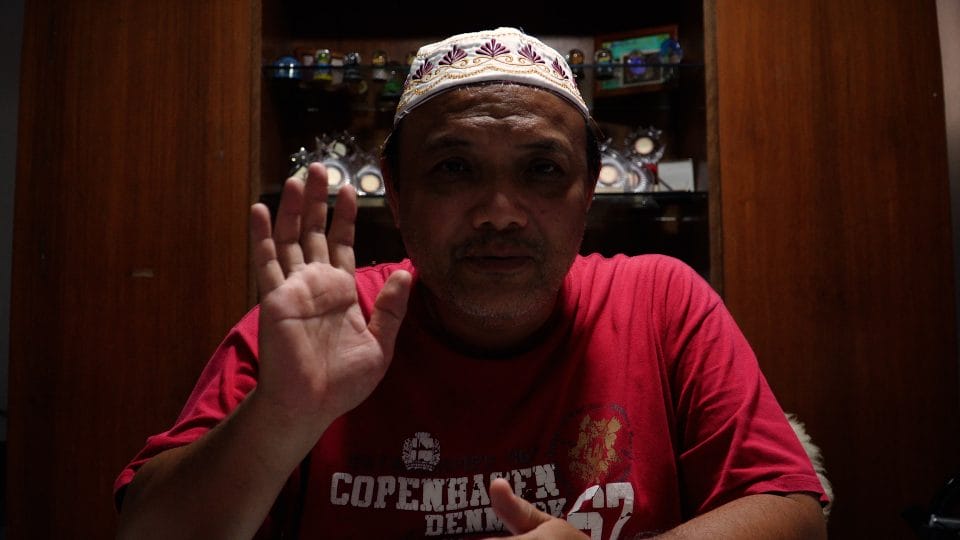
‘Assalamuakaikum’ deals with the relationship between brothers after their father’s death during the COVID-19 pandemic. What was your inspiration for choosing this topic?
There wasn’t a specific source for my inspiration as it was more of just an observation of the world around me. I was looking at the death toll from the pandemic and wondered what if that was someone I knew.
My parents and siblings fought sometimes to be more stringent in safeguarding ourselves during the pandemic; these elements combined to form the basis of my story.
The film also serves as visual documentation of a particular period when frontline workers were separated from their families and communication was confined to the virtual domain. What were your thoughts behind this?
Before the pandemic, my grandmother would stay with my aunt and uncle who are frontliners. My grandmother had to move out during the pandemic and stay with my cousin because my aunt and uncle were considered high-risk. My father would always make frequent calls with his mother and siblings to ensure they were coping. There was a lot of love between those interactions, but I’ve always been used to the physical interaction that they had: a hug, laughter, and smiles.
I salute all those frontline workers who sacrifice their lives to keep their loved ones and country safe.
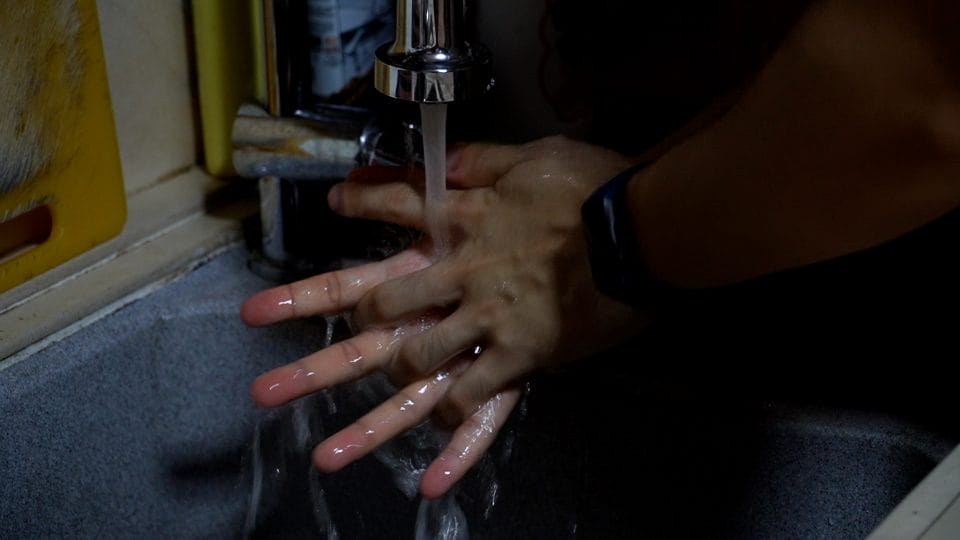
Did you find the short film medium beneficial or limiting in communicating your voice as a filmmaker? Did the story evolve significantly from conception to the final edit?
The short film medium has expressed how I perceived the world during the pandemic, and I’m glad that overseas filmmakers could understand what I was trying to show. However, I think it was beneficial for me because I had to dig deeper on finding my voice in terms of cultural and personal views. Thus, it gave me a sense of uniqueness to the film.
The original concept of the film was meant to be in Mandarin because I thought it’ll be more homely. However, this short film medium challenged me to dive deeper into how to portray my thoughts and experiences.
What was your initial reaction, thoughts, and feelings when you found out that the film was selected for the European Film Festival, and what was it like watching it on the big screen with a cinema-going audience?
Disbelief, [laughs]. I was still a budding filmmaker and while the project has its merits, there are so many things that could be improved on. Having my work selected for the European Film Festival is truly an amazing opportunity.
I’m grateful to my lecturers, Mr Michael Kam and Mr Jonathan Choo, who pushed for my film for festival submissions, and also to Mr Craig for coordinating it with me.
Are you currently working on any creative projects?
I’m currently working on a short dance film for the Lion City Dance Film Festival. It’s a project I’m very excited about working on.
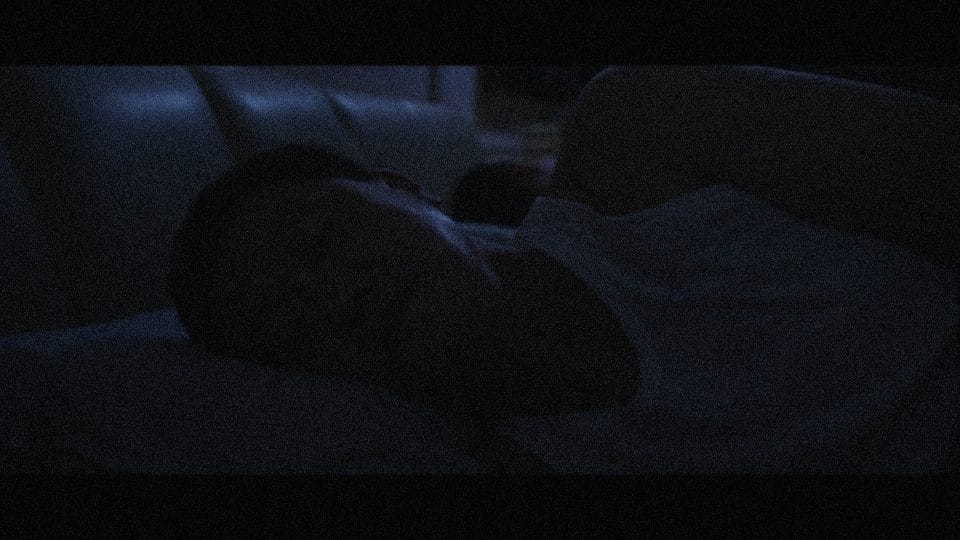
2AM BY TEO JUN MING
What made you decide to pursue filmmaking?
I think growing up, filmmaking or making videos has always been a hobby of mine. And back when I was studying in Junior College, I didn’t enjoy studying so I decided to try something new and pursued filmmaking as a degree which in turn, could turn a hobby into a future career.
2AM has shades of 4:30 by royston tan. Are there any Singaporean and international filmmakers who inspire you?
For this film, I drew inspiration from Tsai Ming-liangs’ film, “I Don’t Want to Sleep Alone” which deals with loneliness and longing using minimal camera movements and long takes. I enjoy the work of filmmakers from the Taiwan New Wave Cinema movement like Hou Hsiao-hsien, Tsai Ming- liang, and Edward Yang whose films deal with similar themes like loneliness, alienation, and change which I’m always interested in speaking about.
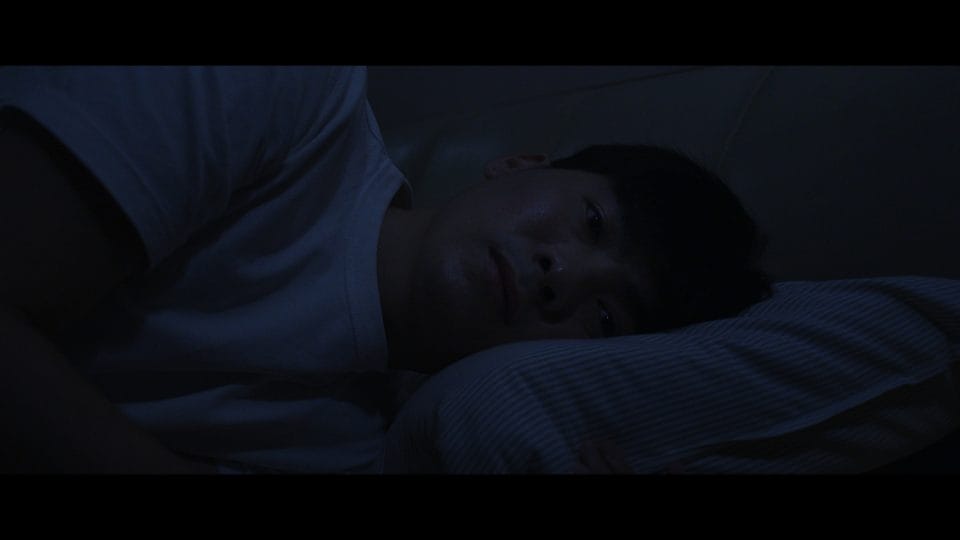
2AM deals with the relationship between a son and his father after his mother’s death. What was your inspiration for choosing this topic?
I drew inspiration from my relationship with my father and my observations of traditional Asian families. For me, growing up in a traditional Asian family, I didn’t have a close relationship with my father as we do not convey our emotions and feelings well and it is really hard to express our love. Hence I wanted to show this “tough love” that is not commonly expressed in a typical Asian family through my film.
Besides, I also wanted to break the idea that men are always tough, because I feel that men also have vulnerable sides to them that they do not show and express. It’s perfectly fine to be vulnerable.
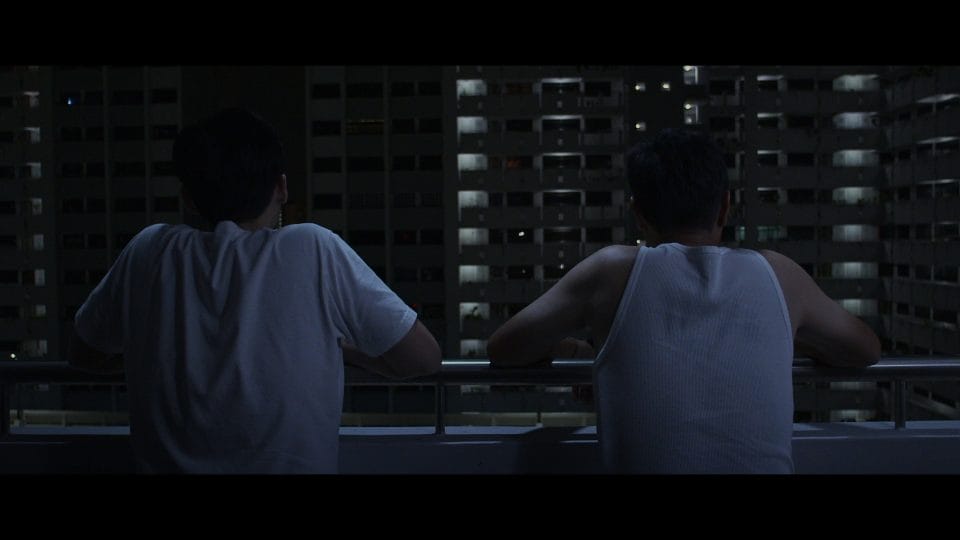
Did you find the short film medium beneficial or limiting in communicating your voice as a filmmaker? Did the story evolve significantly from conception to the final edit?
I feel that short films are a great medium to communicate my thoughts and feelings. At the end of the day, it depends on whether these films have this opportunity to reach audiences; this short film was a final project for my Directing Class Module. Initially, I wrote another script about two friends reminiscing their times at a basketball court after growing up and out of the game.
But I got stuck halfway and rewrote a new script which became 2AM instead. I wrote it pretty quickly and did not change much of it during the final edit.
2AM starts from the outside looking in and ends from the inside looking out. It also uses silence to its advantage in communicating unspoken emotions between the son and his father. Could you share more about the creative filmmaking choices you have made?
As it was a five-minute short film assignment, I wanted to keep it simple and not waste any shots; I tried to ensure that each shot or line has the most effective way to bring out an idea. For instance, I placed the father on the shadowy side to create the idea that he has a lot of emotions and feelings that we do not see. And just as you mentioned, I positioned the son behind the window grills at the start of the film to convey his trapped feelings.
As we get to the end, both he and the father are outside to show how their feelings are more open now after having the talk on the bed.
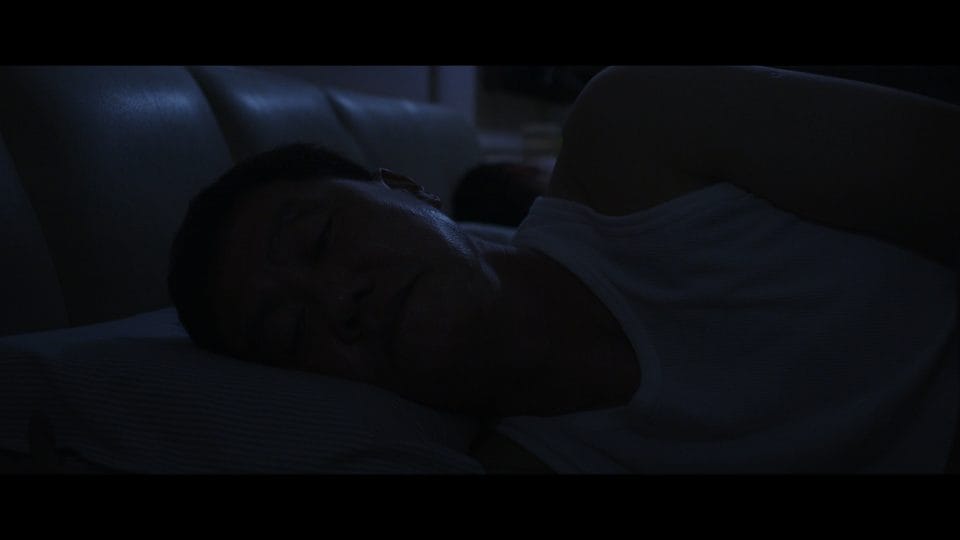
What was your initial reaction, thoughts, and feelings when you found out that the film was selected for the European Film Festival, and what was it like watching it on the big screen with a cinema-going audience?
It was quite surprising as I thought that this film will only be kept in my hard drive and will not make it out to see the light of the day after my Directing Module ended. I’m kind of nervous and shy because I’m not sure how the audience will react to it or if they will even understand the film at all.
Are you currently working on any creative projects?
I’m currently working as a freelancer to try out as much as I can and am on the lookout for opportunities to head into documentary film-making.
These interviews with the student filmmakers for the European Film Festival has been edited for clarity. Click here to catch up with our June/July 2022 issue!


